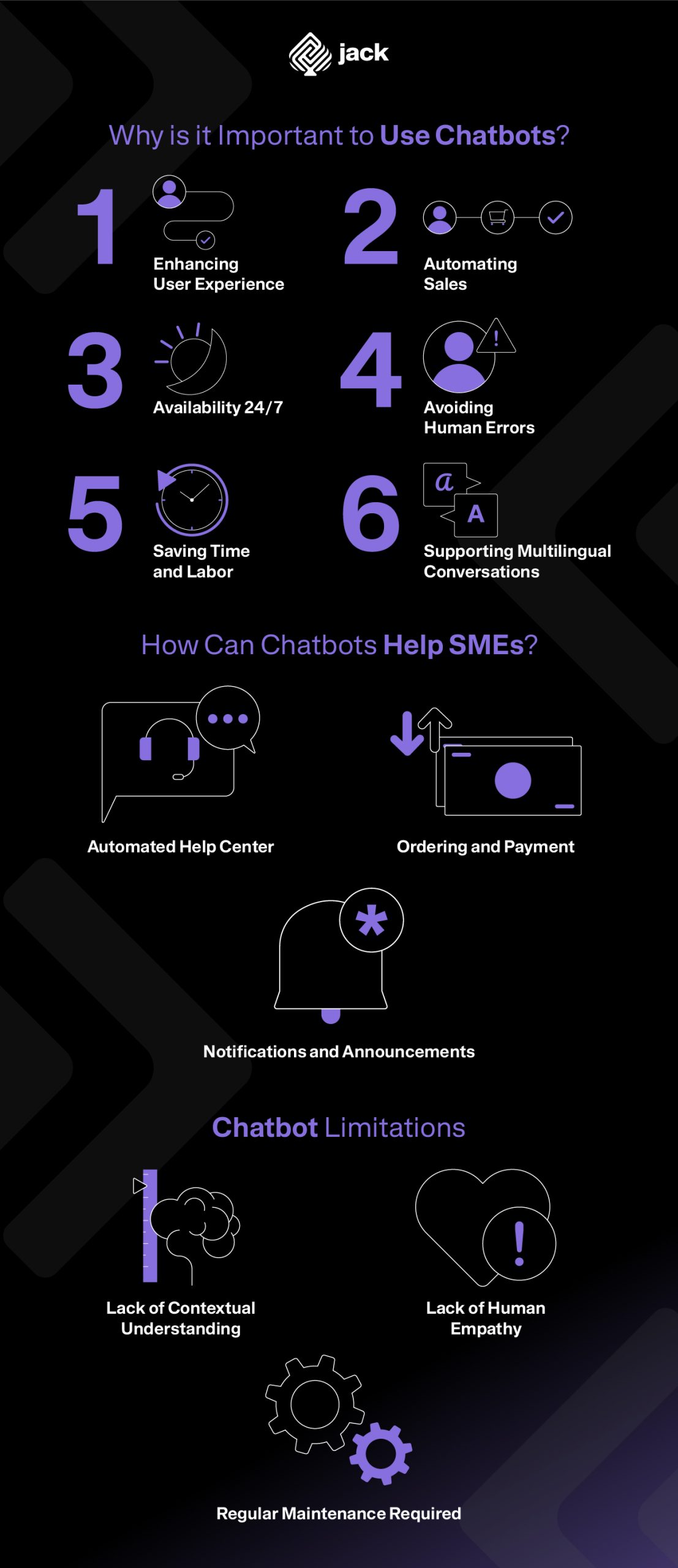The use of chatbots is becoming increasingly familiar across various platforms, such as e-commerce. Common customer questions can now be answered within seconds. Customers no longer need to wait for their turn while administrators finish answering other customers.
What problems can be solved with the presence of chatbots? Is it just about providing quick chat responses? Chatbots indeed help businesses optimize customer service by being more responsive and available 24/7. Are there any other benefits?
Understanding Chatbots
Imagine having an employee on your customer service team who works 24/7 without breaks, never complains, and performs all repetitive tasks tirelessly. That’s the advantage of chatbots that many online businesses experience.
Hootsuite defines chatbots as AI-based computer programs designed to learn and mimic human conversations. Businesses typically utilize chatbots to answer common questions, provide product information, direct customers to the appropriate web pages, and handle basic transactions.
Chatbots can also assist in automating repetitive tasks, reducing response times, and improving operational efficiency.
How Can Chatbots Help SMEs?
For small and medium-sized businesses, chatbots can be an effective solution to save labor costs. Chatbots can take over basic customer-related tasks. They work by responding to specific keywords or phrases.
For example, a clothing business’s chatbot can be programmed to answer the keyword “Is XYZ product in stock?” by checking a database that stores stock information. If the product is available, the chatbot responds with “Yes,” and if not, it answers with “No.”
Let’s say after the chatbot answers “Yes,” it directs the customer to complete the transaction before the stock runs out. If the answer is “No,” it sends a link to similar available products in the catalog for purchase.
Here are some ideas for implementing chatbots for small businesses:
1. Automated Help Center
Create a chatbot to provide quick assistance and answers to customers. The chatbot can provide information about products or services, address common issues or questions, offer user guides, and help customers find the solutions they need.
2. Ordering and Payment
Integrate the chatbot with an online ordering and payment system. Customers can use the chatbot to place orders, check product availability, track delivery status, and make payments easily.
3. Notifications and Announcements
Utilize the chatbot to send notifications to customers regarding special offers, discounts, or upcoming events. The chatbot can remind customers about expiration dates or alert them to limited-time offers.
Why is it Important to Use Chatbots?
Businesses tend to use chatbots to save costs. Here are more detailed reasons why businesses need to implement chatbots:
1. Enhancing User Experience
Often, customers reach out with urgent reasons, such as complaints about their orders. If not responded to promptly, businesses risk leaving a negative impression regarding their service. Therefore, chatbots can be an ideal solution to provide quick answers and immediately address any issues.
2. Automating Sales
Sales tasks can be automated through chatbot implementation. Businesses can set up chatbots to guide customers through each phase of their customer journey, from viewing product ads and visiting the website to checkout and payment.
3. Availability 24/7
The significant advantage of chatbots is their 24-hour availability. Their constant activity ensures that customers can be served outside of office hours and even during national holidays.
4. Avoiding Human Errors
Chatbots can be relied upon to provide consistent answers and avoid mistakes that humans might make. They have unlimited patience in responding to frequently asked questions. By using chatbots, businesses can ensure the quality and consistency of communication with customers.
5. Saving Time and Labor
By utilizing chatbots, businesses only need to invest in computer software costs rather than hiring new employees. This helps save labor costs and allows team members to focus on more complex tasks.
6. Supporting Multilingual Conversations
If programmed to be multilingual, chatbots can communicate with audiences in their preferred languages. This helps expand the customer base and facilitates interactions with individuals who speak different languages.

Chatbot Limitations
Although chatbots offer many advantages, there are some limitations to consider:
1. Lack of Contextual Understanding
Chatbots often struggle to understand the context or nuances in conversations. They may have difficulty recognizing complex phrases or questions, resulting in irrelevant or inadequate responses.
2. Lack of Human Empathy
As the name suggests, chatbots are essentially robots or machines that lack human emotions. They cannot respond to customers’ feelings and can only provide answers to pre-programmed issues based on training data.
3. Regular Maintenance Required
Companies need to ensure that chatbots have up-to-date information and can provide accurate answers to customer inquiries. Therefore, chatbots require regular maintenance and updates to remain effective and relevant.
What is a B2B Chatbot?
Although chatbots are often associated with customer service, their usage has expanded to meet the needs of B2B interactions. Companies can use chatbots to receive requests and offers from business partners.
Chatbots gather necessary information, such as the type of requested products or services, desired quantity, and preferred delivery schedule. Chatbots can also be programmed to provide price quotes or facilitate further communication with the sales team.
For example, a B2B project management software provider can implement a chatbot to provide technical support to users. The chatbot can answer common questions about product usage, provide troubleshooting guidance, or direct users to relevant reading materials or tutorials.
This helps reduce response times and provides quick support to business partners.
Do Customers Prefer Chatbots?
The cost-saving advantages of chatbots are undeniable. Sprout reveals that chatbots can reduce operational costs by up to 30%. Additionally, it is estimated that chatbots can save 2.5 billion hours in service duration.
However, there is another important aspect to consider, the customer’s perspective. A Userlike survey conducted in December 2022 found that customer preferences for chatbots depend on specific situations and their needs.
While some customers appreciate the efficiency and convenience of interacting with chatbots, others still prefer human agents for more complex or emotionally sensitive questions.
Customers tend to prefer chatbots when seeking quick answers to simple questions, such as FAQs or basic product information. However, when facing more complex issues or situations that require empathy and urgent assistance, customers often prefer human agents. Humans are seen as better able to understand customer moods, show empathy, and provide tailored solutions.
Use Jack for your business needs
Chatbots bring significant benefits to businesses by enhancing efficiency, providing quick responses, and offering 24/7 customer service. Although customer preferences may vary, well-customized chatbot usage can improve user experience and help strengthen customer relationships.






